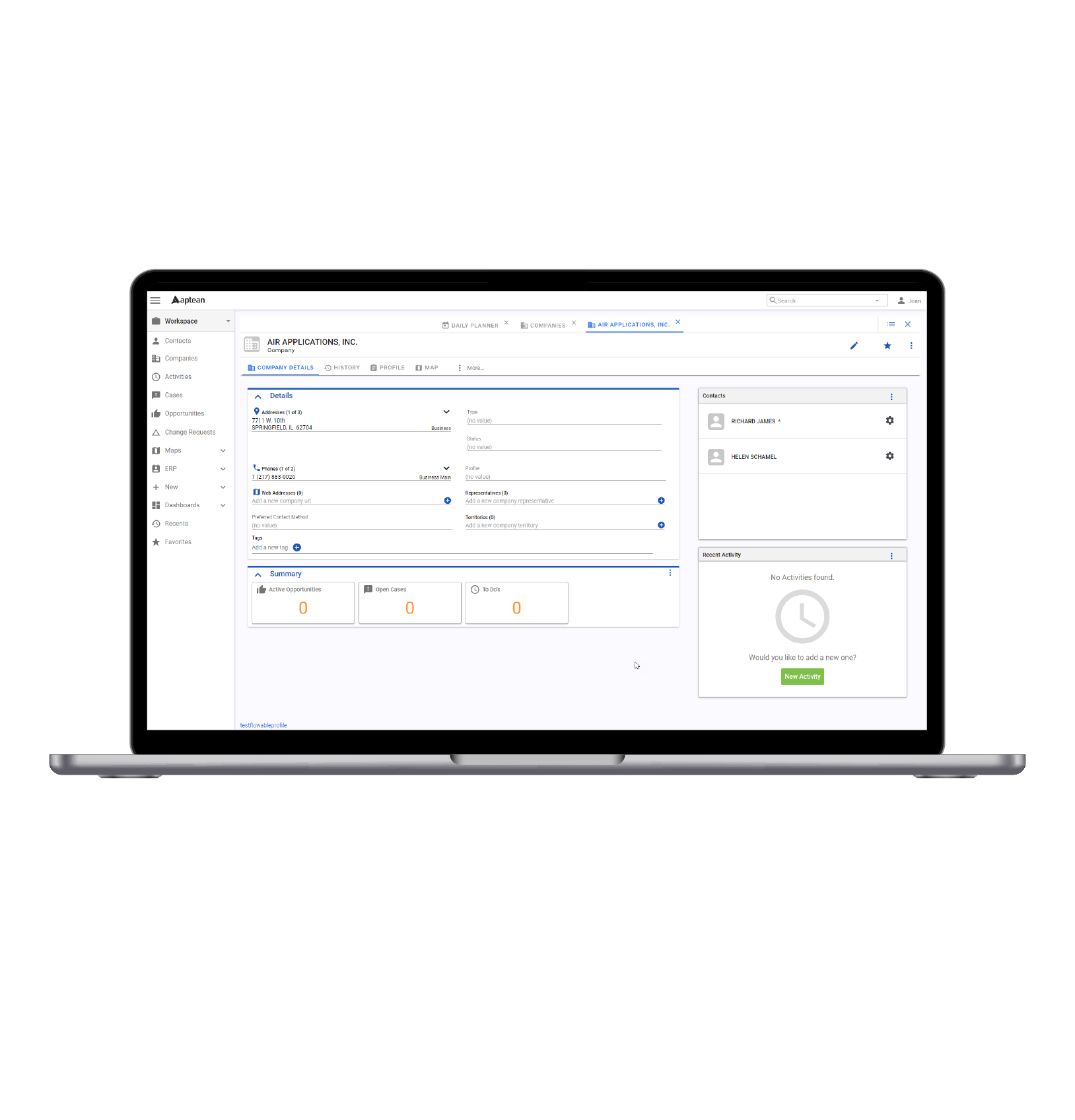Featured in this post
Comparing Top ERP Platforms
Comparing Top ERP Platforms
21 Jan 2022
 Aptean Staff Writer
Aptean Staff Writer 
Using an ERP - or enterprise resource planning system - will bring a range of benefits to your organisation.
Thanks to a shared database, you get an accurate and detailed view of all your business data, improved efficiency and streamlined processes. Data is easily exchanged between different departments removing siloes and enabling automated reporting for data-driven decision making.
In short, an ERP system ensures efficient coordination of your data and business processes. In today's competitive business landscape, it is a technology that you cannot afford to miss out on.
However, the market is flooded with options and choosing which ERP system is best platform for your business can be complicated and daunting. In this blog, we'll take a closer look at three of the largest, well-known enterprise resource planning systems.
The Big Three: SAP, Oracle Netsuite & Microsoft Dynamics 365 Business Central
There are three major players to take into account in the ERP software landscape. Oracle NetSuite, SAP Business One and Microsoft Dynamics 365 Business Central.
All offer SaaS, which is undoubtedly an added value for any company and table stakes today, and all are established, reputable brands. But, as with any software project, there are often drawbacks to choosing the very largest, powerful and generic solutions on the market. Just two examples: less specialised software designed for your industry and a less attentive and dedicated implementation and support approach.
Aptean Food & Beverage ERP, for example, offers unique, industry-specific technology built on the Microsoft Dynamics 365 Business Central platform, which affords it a familiar feel and optimized user experience; while assisting you in realising your full business potential through technology and digital transformation. This means you get all the benefits of choosing a large, established, familiar ERP platform, whilst also gaining the industry-expertise and specialisation of both the Aptean software and team.
What are the differences between Business Central and the other major players in the market? Let's make a short comparison for you.
Oracle NetSuite vs. Microsoft Dynamics 365 Business Central
A Solid Base
Which solution suits your company best? This depends strongly on your business type. Oracle NetSuite provides broad capabilities and add-ons for many types of industries. However, if you are looking for more sophisticated modules, Business Central is a better option. If you are a company in full growth, the specialised basic packages for production and distribution can always be expanded. These are Premium upgrades for advanced inventory and production management. In short, Business Central grows with your business activities, and we think that is a great asset.
Integration of Third-Party Software
As the name suggests, Oracle NetSuite is a Suite software. This means you only need a single software solution to cover all industries and, therefore only one supplier. Unfortunately, this also has a downside. The functionalities may be too broad. In other words, it is challenging to meet specific needs. If this is the case, you will need to look for other software solutions to fill in the gaps for further specification. The biggest disadvantage of this is the integration of this “extra” software. Oracle NetSuite is designed as a complete total solution and integration with other tools and solutions is often very difficult.
Business Central is designed with such integrations in mind, from its own Microsoft portfolio via AppSource for Microsoft approved vertical applications and integrations, but also with third-party software. You can add them easily and worry-free, regardless of your current or even future needs—another reason why Business Central is the perfect solution for a growing business.
Familiar Product Portfolio
If you already use Microsoft products within your company, Business Central fits in seamlessly with only a simple integration process. What's more, other tools like Power BI, extremely useful for analytics and reporting, and PowerApps for custom applications, are easy to integrate with Business Central.
Oracle NetSuite also offers Microsoft product integrations, but is simply less easy to integrate.
The Total Sum
Both Business Central and NetSuite undoubtedly meet the standard needs of any small, medium and even large organisation. However, Business Central offers a range of full ERP capabilities at an affordable price. In short, Business Central is accessible to smaller players who have a smaller budget, but who have the ambition to grow. On the other hand, Oracle NetSuite requires purchasing additional modules on top of the base package. This sends price skyrocketing. Do you still doubt between the two? Then it is important to make the total sum.
In a Nutshell
Oracle NetSuite provides an ERP solution that spans across your business with a broad standard. But, are you looking for a system with specialised modules that is easy to integrate with other products and tools, and one that is able to grow with your company? Then we are convinced that an Aptean solution run on Business Central can meet all your current and future needs.
SAP Business One vs. Microsoft Dynamics 365 Business Central
Future Proof
A company must always have the future in mind, which also means being prepared for growth. Your ERP system must also grow, preferably along with your company's growth rate. SAP has a good standard, but as your business grows, the software may no longer be able to meet your needs. You will then have to migrate to another solution that does.
As mentioned before, Business Central is designed to grow with your business, no matter what industry you operate in. It can withstand upscaling and internationalisation, and therefore, the future.
Service After-Sale
For both SAP Business One and Business Central, you have the possibility of deploying the software on-premise or in the cloud. The difference lays in the after-sales service. When you buy SAP, the sales partner gives you access to a help portal, where you learn to configure, implement and update the software when necessary. Do you need more than the standard? Then you can also expand the software with add-ons via the portal, but then you can quickly conclude that this is a huge DIY assignment.
In contrast, Business Central, can only be implemented with the help of your vendor, who will help you from start to finish with the implementation and expansion of your project. We at Aptean provide advice and technology that meets your needs, growth ambitions and competitive situation. But, also a guaranteed tailor-made service. With Aptean Food & Beverage ERP you enjoy complete support.
Customised ERP
Every business is unique, so needs will vary depending on the size and nature of your business. Both solutions allow you to integrate other applications, as well as to customise the ERP. Business Central works with a huge network of partners who can support you in extending the standard. This way, you work together to create a fully tailored solution to your company.
In a Nutshell
We mainly see SAP Business One in companies focused on services. Business Central goes a little further than its counterpart, thanks to a CRM functionality in the system. Again, when you look to the future as a company, Business Central will continue to meet your needs, no matter how fast you grow. The options for expansion are almost endless, especially when a full team of consultants guide you through the entire implementation process.
So, ready to learn more about Aptean Food & Beverage ERP and the rest of the software in our suite? Contact us today, or request a personalised demo.
Request a Callback From a Manufacturing ERP Expert
We’ve got the specialised ERP solutions you need to conquer your industry challenges.



